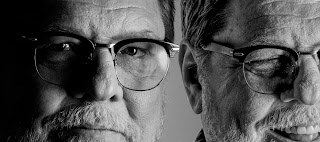This week’s question was about the publishing business, how it’s changed since your first release, where did we see it would be in the next ten years. Luckily writers smarter than me have spoken eloquently to this earlier in the week.
I’m going to share with you how the publishing industry effects my work and what I’ve done to survive and maybe even thrive.
New Writer: How do you write a novel?
Me: I don’t know. I can’t. It is an impossible task.
New Writer: No. I meant what software do you use?
Me: Started with MS Word. Moved to Nisus, now I use Scrivener. None have made it any more possible to write a novel. Fact is the only software necessary is between your ears and still it is an impossible task.
(New Writer walks away shaking his head at my mad gibberish.)
I have five published novels, been up for some awards, gotten some wonderful reviews. And none of that makes the task any easier. Every novel is a new journey with all new pitfalls and discoveries.
Right now my sixth novel is still a MS (manuscript) out on submission - meaning my agent is shopping it to editors at publishing houses. The upside, an absolute dream list of editors asked to read it. Editors who have worked with some of my favorite writers. Downside: at this moment in publishing history a few factors like a world wide pandemic, fears of inflation / recession, employees reassessing career goals and leaving, have all built up to leave things a bit higgledy piggledy, in an end of days kinda way. One of the results is, it’s taking longer than usual for editors to get to reading new books. No fault of theirs. These are tough days, and nights for all.
This is the best book I have written, bigger and stronger in many ways. Deep in some hidden place I had hoped we’d send it out and a few weeks later I’d be popping the Martinelli's sparkling cider to celebrate a sale.
I try to not take the silence personally. But it effects me personally. What I need to be doing is working on my next book. It was meant to be a sequel to the one we haven’t heard back about, so that’s out. I need a new idea. Yet every idea is met by self doubt screaming “you aren’t good enough to write that book.” It takes massive hubris to stare at a blank page and say, “Oh yeah I can build a world here and people it with compelling characters. No problemo.” And while I wait to hear back I find myself running short on hubris.
 |
| Two sides of the same mad man. |
And then I’m talking to my friend Chantelle, she acquired and edited my last book, Tricky. I float two or three ideas past her. I have a basic idea that I keep trying to plug into books that I think will sell better. “Instead of LA, it is LA but post apocalyptic LA vegans vs carnivores… Or, it’s about my father but instead of an artist in the rainforest, he’s a talking Raccoon…. Or, it’s all those things and it takes place in France…”
Chantelle says nothing but I can hear these pitches sinking over the phone. I don’t mind, none were good enough to fight for. After I’m done making a fool of myself, she said something like, “The best books come from the author’s original point of inspiration. Maybe you should go back to your original idea. Maybe write that. Write the thing you wanted to write.”
Damned if Chantelle wasn’t right.
I sat down the next day and the story flowed out. I have stridently said I don’t work from an outline. I will have to amend that to I don’t work from an outline, unless I do. This thing came flying out, beginning middle and end. Lots to flesh out as I write it, but I can see the structure clearly. And for once I know what the book is about. Good news is my agent and a few of my most trusted confidants agree I’m onto something good.
Today I’ll let inspiration and intuition guide my hand. There is no guarantee of tomorrow so I must type as if these are my last words. Write as fiercely honest as I am capable. And tell my inner critic to fuck the hell off.
I’m three chapters in now. The book is flowing. I feel electric. And I know I am heading for that dreadful moment where I realize I’m not up to writing the book I see in my head. The moment where I see my complete failure crashing down around me. Been there before. Every book has that moment inherent in the journey. I just push through it.
Last night I was reading John Steinbeck’s Travels with Charley In Search of America. In a passage where he’s studying a map getting ready for this epic journey he realizes he’s taken on too much, it will be too long, too difficult…
“How in hell I’d got myself mixed up in a project that couldn’t be carried out. It was like starting to write a novel. When I face the desolate impossibility of writing five hundred pages a sick sense of failure falls on me and I know I can never do it. This happens every time. Then gradually I write one page and then another. One day’s work is all I can permit myself to contemplate and I eliminate the possibility of ever finishing.”
If Steinbeck could eliminate the possibility of ever finishing and still keep typing, then so can I. So can you. The wall only beats us if we stop running our forehead into it.
The future of publishing is yet to be written. But I know what I’ll be doing… typing out my truth best I can. Climbing unclimbable mountains one word at a time.
***
Photos (my face) by Barry Samson, (type Writer) by Nino Gabaldon




































